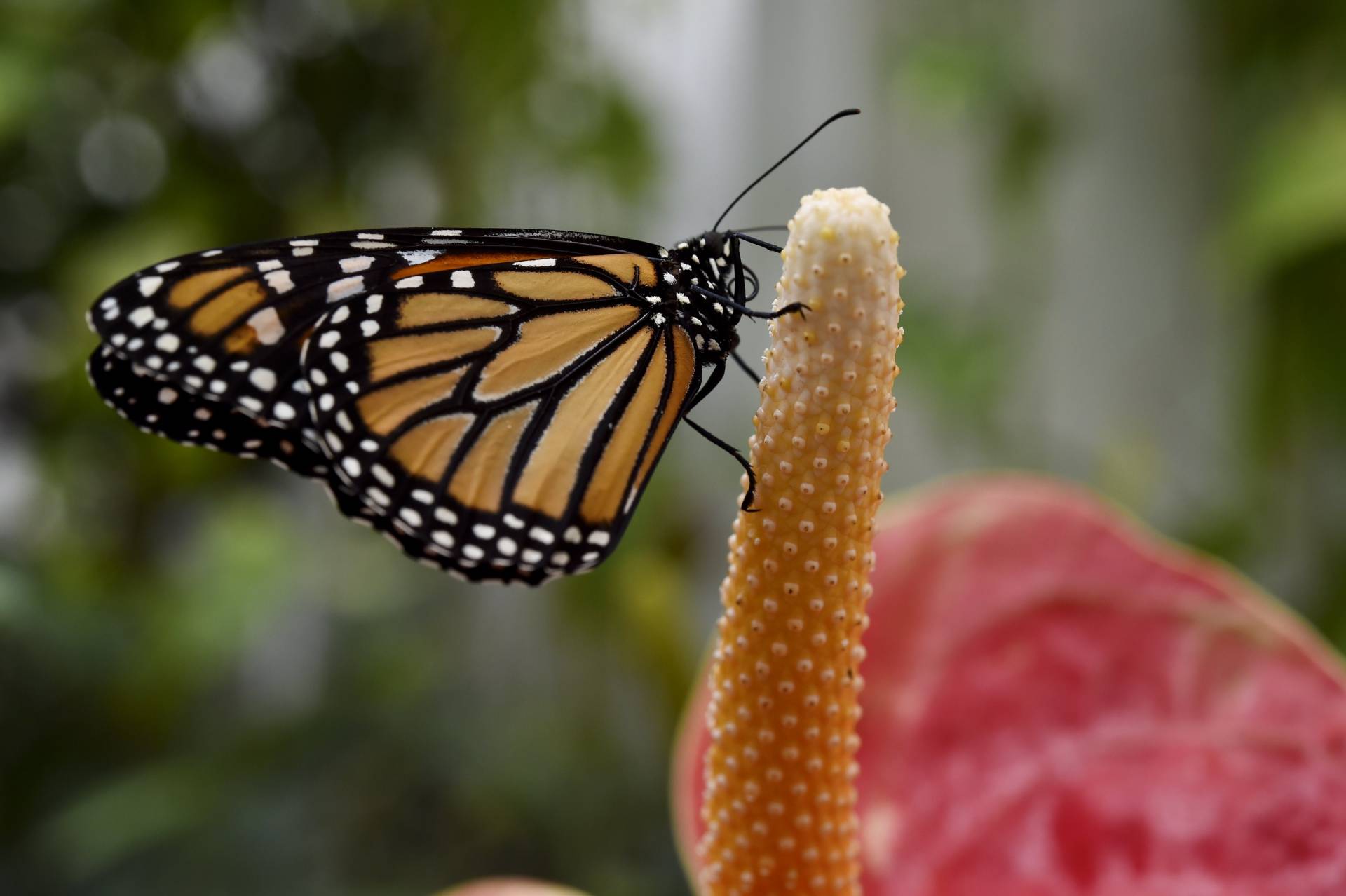“It would really be kind of a lifeline to Western monarchs,” she said. “And I think at this point, that’s absolutely what we need.”
The Golden State provides a safe haven for the orange- and black-winged butterfly to escape harsh temperatures while overwintering in coastal forest groves. In the spring, monarchs give birth to the next generation of butterflies, laying their eggs on native milkweed plants. Pelton says protecting this habitat is key for the insect’s survival.
A status assessment conducted by the U.S. Fish and Wildlife Service found that the Western population of monarchs has a 60% or more chance of going extinct within the next decade. While the Eastern migratory population has fared somewhat better, it’s experienced a 70% decline since the 1990s.
Fish and Wildlife published the results of its assessment, which don’t account for this year’s precipitous drop in Western monarch populations, in the Federal Register on Thursday.
“We conducted an intensive, thorough review, using a rigorous, transparent science-based process and found that the monarch meets listing criteria under the Endangered Species Act,” said agency Director Aurelia Skipwith in a statement. “However, before we can propose listing, we must focus resources on our higher-priority listing actions.”
There are currently more than 160 species in front of the monarch in line for listing, according to the agency. Officials attribute the delay to workload constraints and the critical status of other species.
“It gives no protection. That’s I think the biggest takeaway,” Pelton said of the decision. “It’s saying that we don’t have the capacity to deal with this right now.
Without legal protections, the survival of monarchs will, for now, hinge on grassroots conservation efforts from groups like the Xerces Society and others.
“A little bit of a silver lining with monarchs is that all of the efforts to conserve the species across North America have made and continue to make a big difference,” said Charlie Wooley, Fish and Wildlife director for the Great Lakes region, at a press conference Tuesday. “We are just so impressed with the way the American public have raised their hands, gotten engaged in planting milkweed on their private properties in their backyards, developing wildflower gardens that help monarchs and other pollinators.”
Unless the species rebounds, wildlife officials say, monarchs could receive endangered status in 2024.
